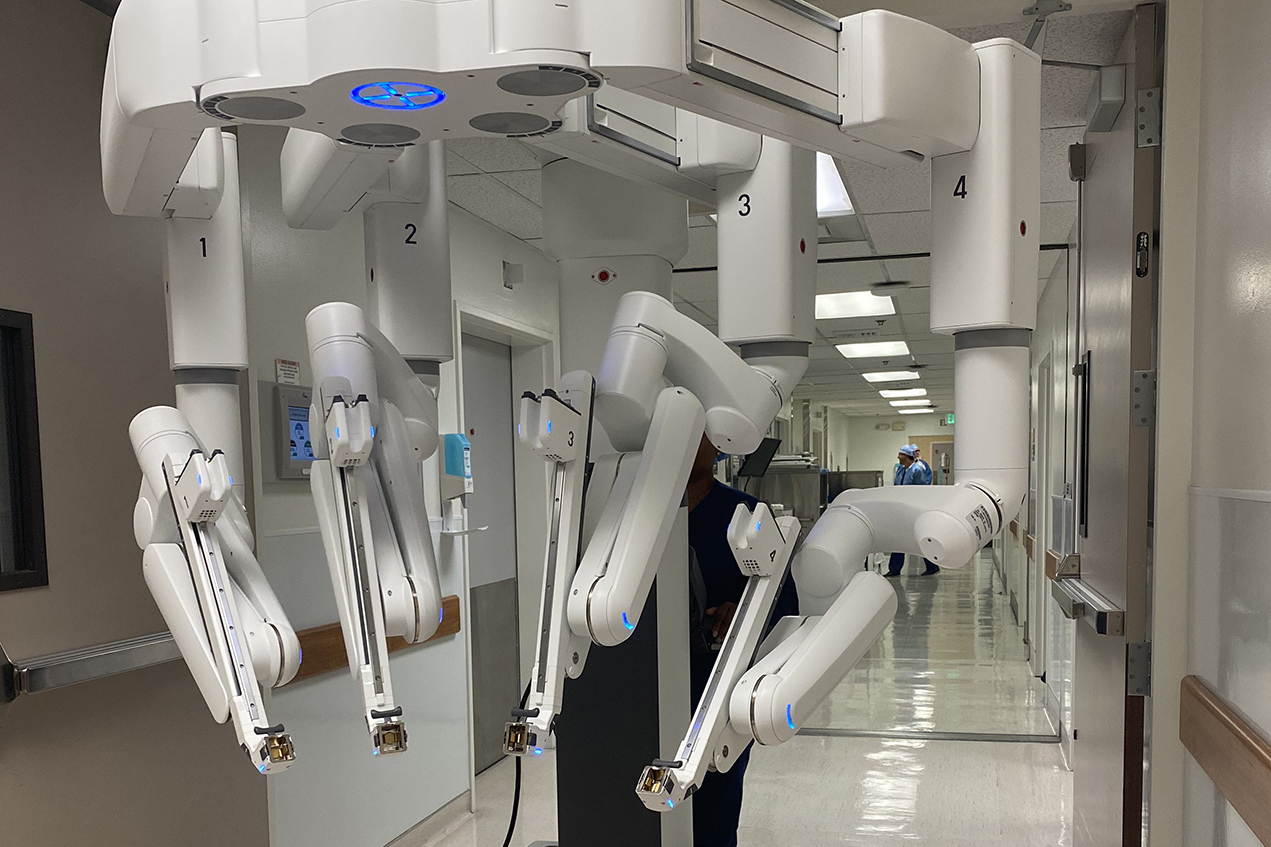Last month, USC Verdugo Hills Hospital welcomed two new surgical robots into the operating room. They offer a broader range of motion, giving surgeons more dexterity during surgery. They also feature three-dimensional, high-definition visuals for improved clarity and definition.
By adding the two robots to its arsenal, USC-VHH expands its minimally invasive surgical services from urologic surgery to also include colorectal, thoracic, gynecologic and general surgical procedures.
“Robotic surgery is common in centers of excellence like large medical centers, but patients have a harder time finding surgeons who have the resources or expertise to perform these procedures in community hospitals,” said Armand Dorian, MD, chief medical officer at USC-VHH. “Our goal is to become a center of excellence for robotic surgery for the Foothill communities, offering procedures from highly skilled physicians, but with the comfort of staying close to home.”
Contrary to what some people believe, robotic surgery does not mean that a robot performs the surgery. Instead, specially trained surgeons control the robot to accomplish tasks faster and with greater ease than traditional open surgery. The robot can move more flexibly than the human wrist, and a high-definition monitor offers a magnified view of the surgical area. Surgical robots have also shortened the duration time of many procedures. For example, an open partial nephrectomy (removing the cancerous portion of someone’s kidney) used to take 8-10 hours and required cutting into a patient’s ribs to access the organs. With a surgical robot, the procedure only requires a few abdominal incisions for the robotic arms, and the procedure can be performed in three to four hours.
Robotic surgery is beneficial for patients because the robot only requires a few small incisions. As a result, patients experience less pain and blood loss, with minimal scarring. Often, these patients are able to go home sooner and recover faster. Furthermore, the deft robotic movements and magnified view empower surgeons to work more accurately, which can lead to fewer side effects than open surgery, particularly in small areas like the prostate.
USC-VHH is uniquely positioned to become a local center of excellence for robotic surgery due to its affiliation with Keck Medicine of USC, where physicians are nationally recognized for their robotic surgical outcomes and research.
“Without an accomplished surgeon at the helm, a surgical robot is just another tool,” Dorian said. “USC-VHH is fortunate to have the latest technology, the surgical expertise, and the compassionate care you would expect from a community hospital, and that combination is what sets us apart.”


